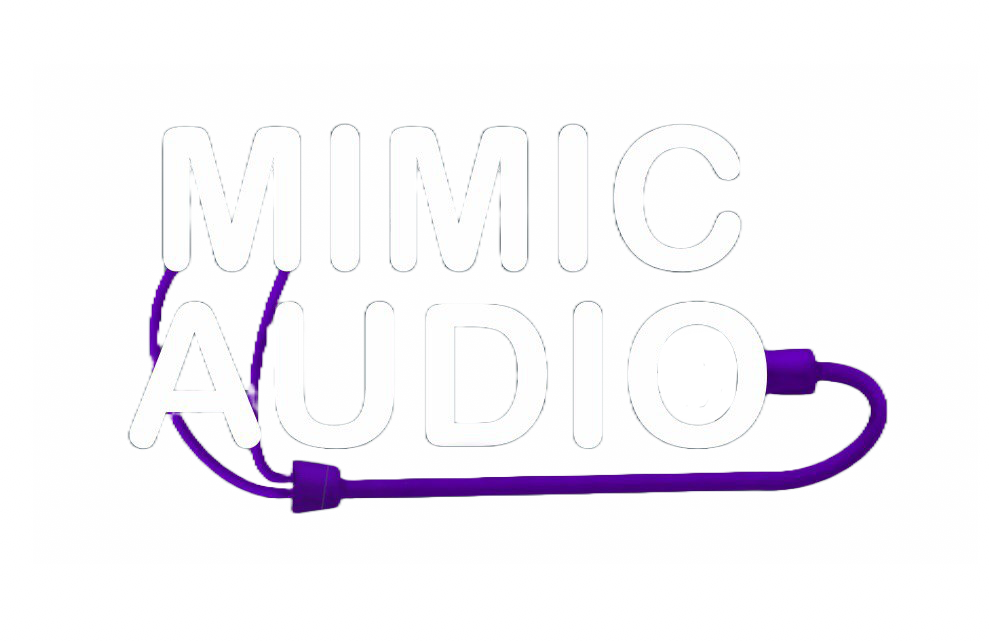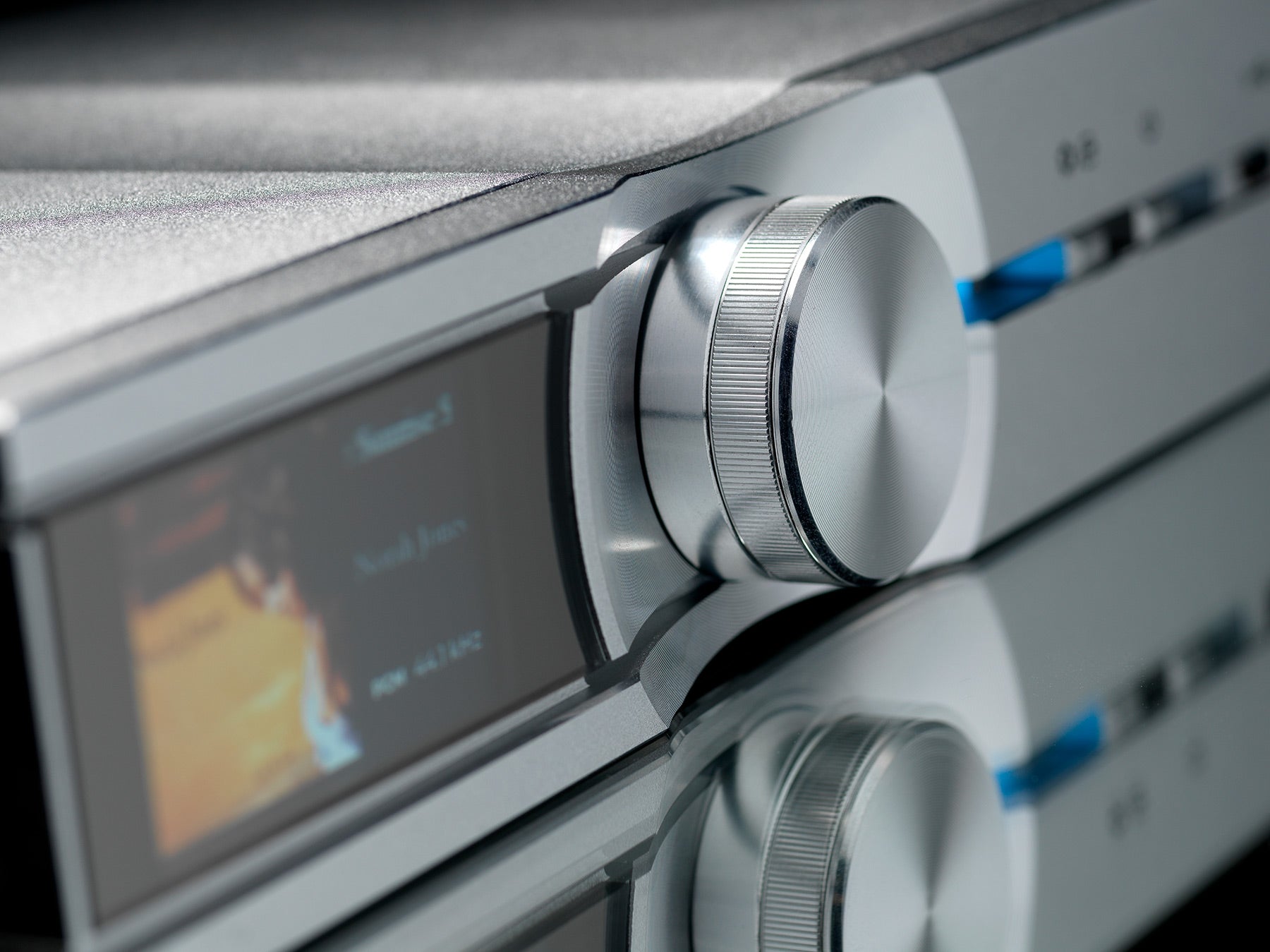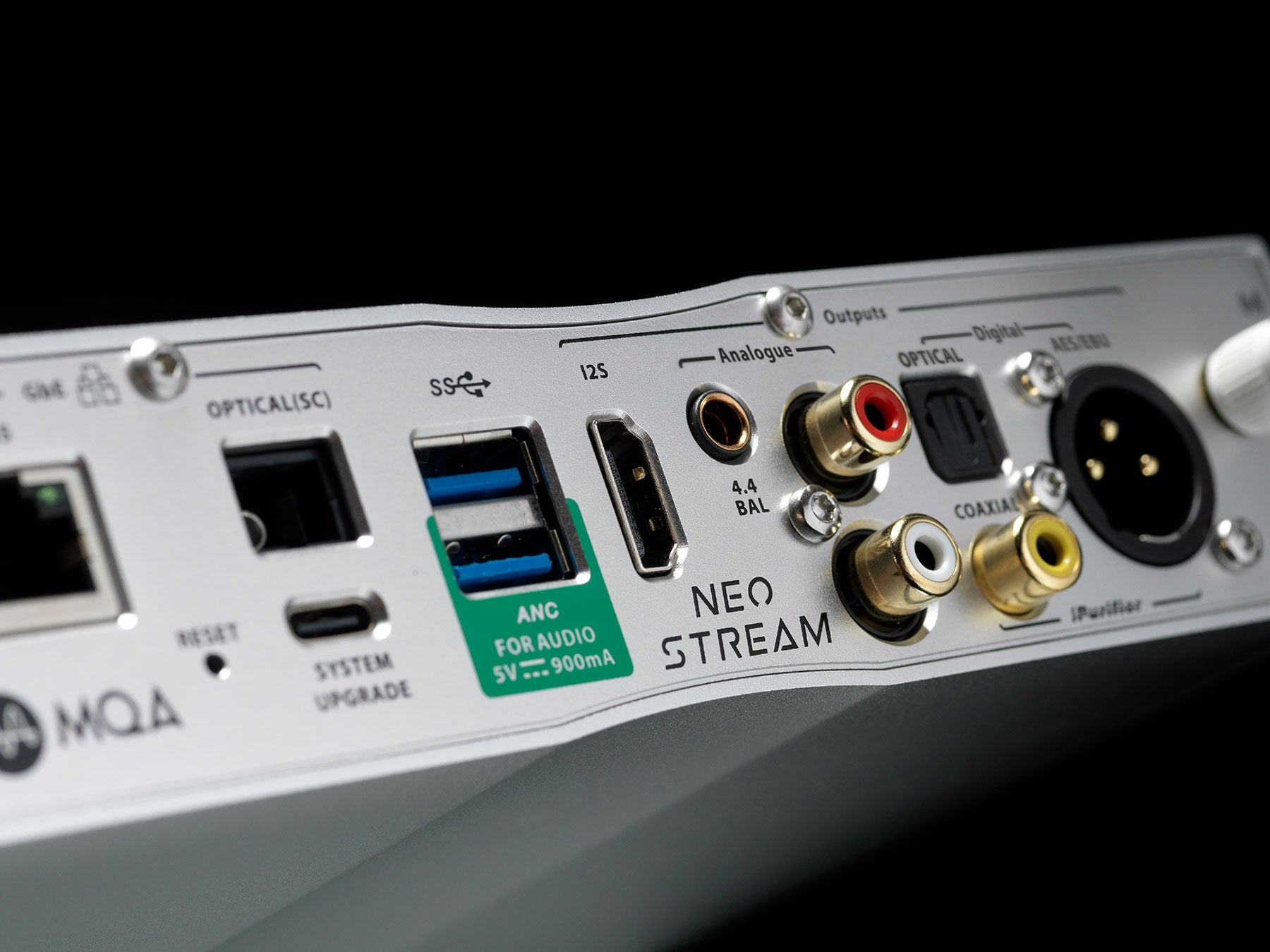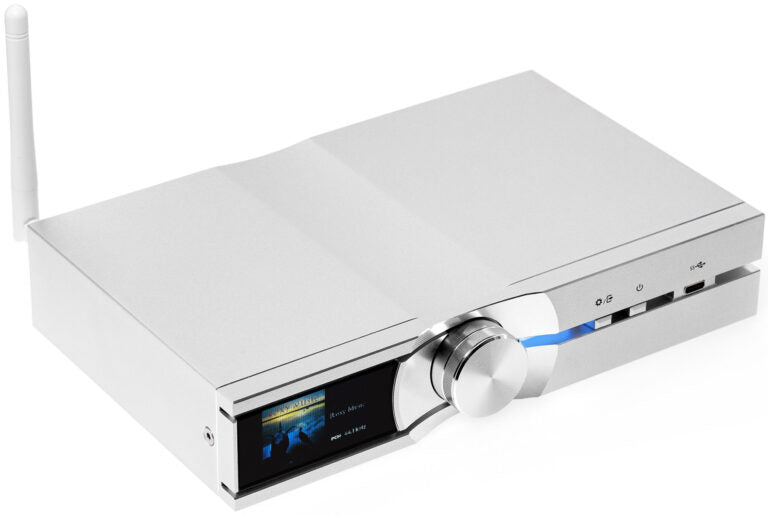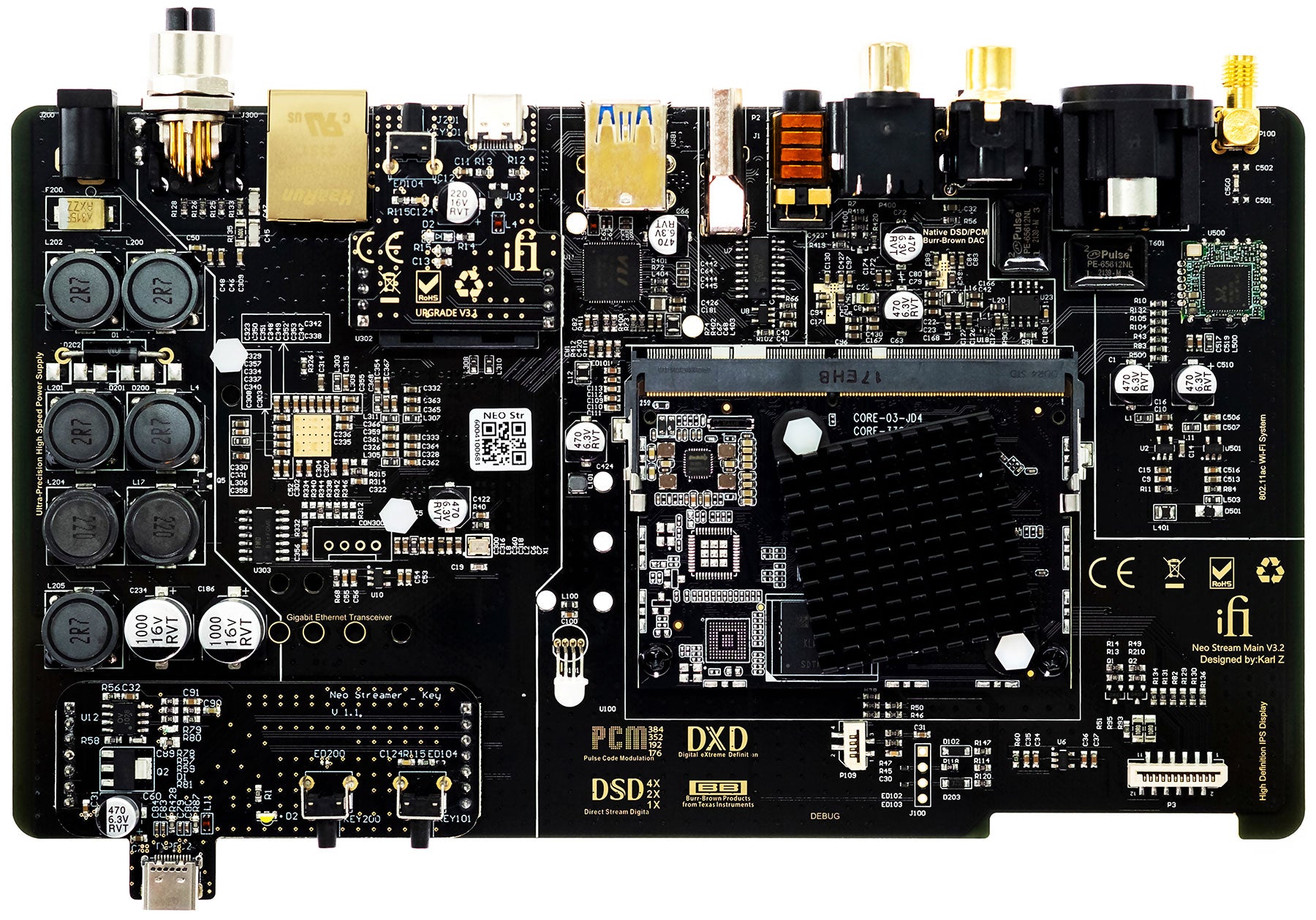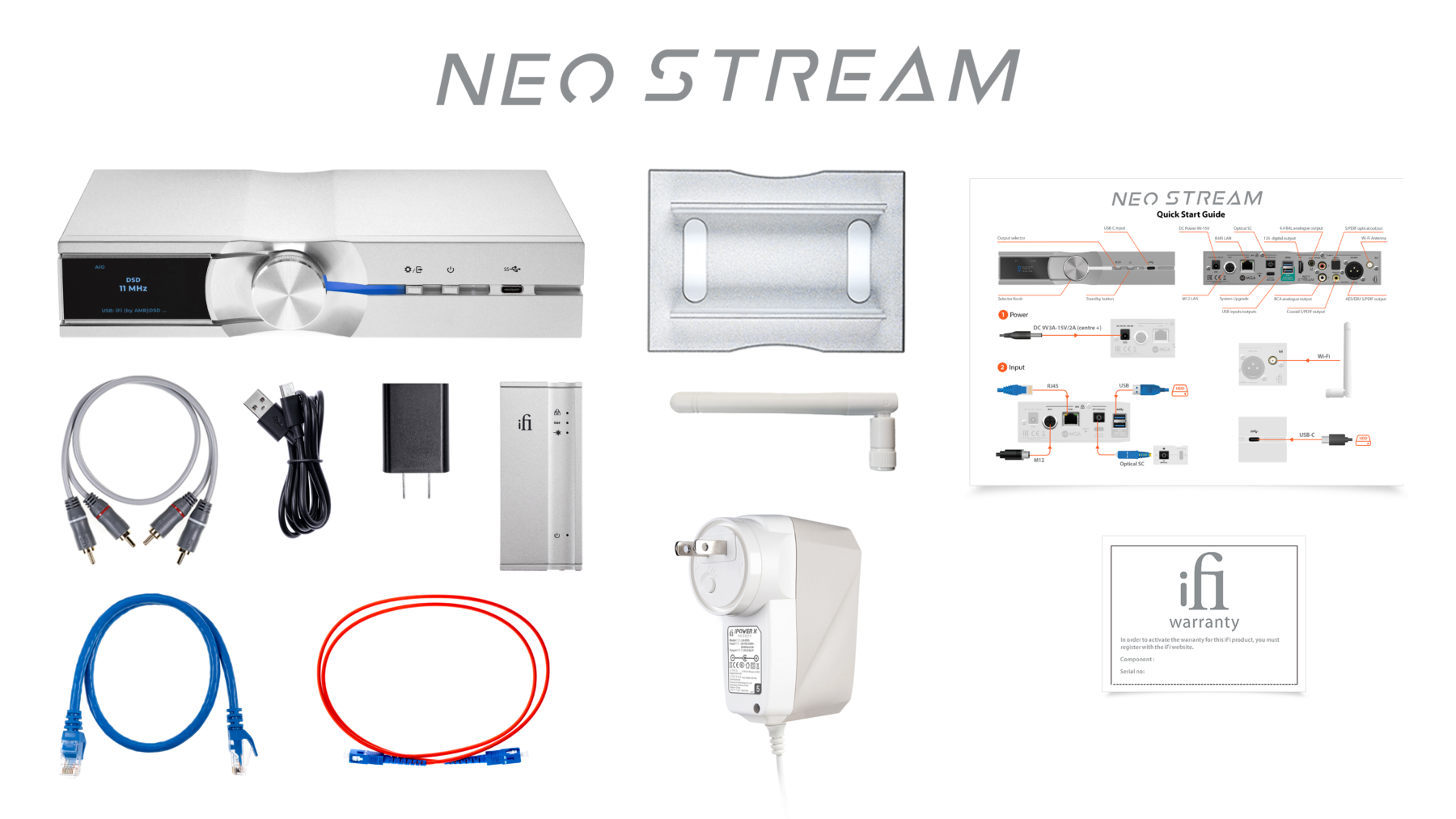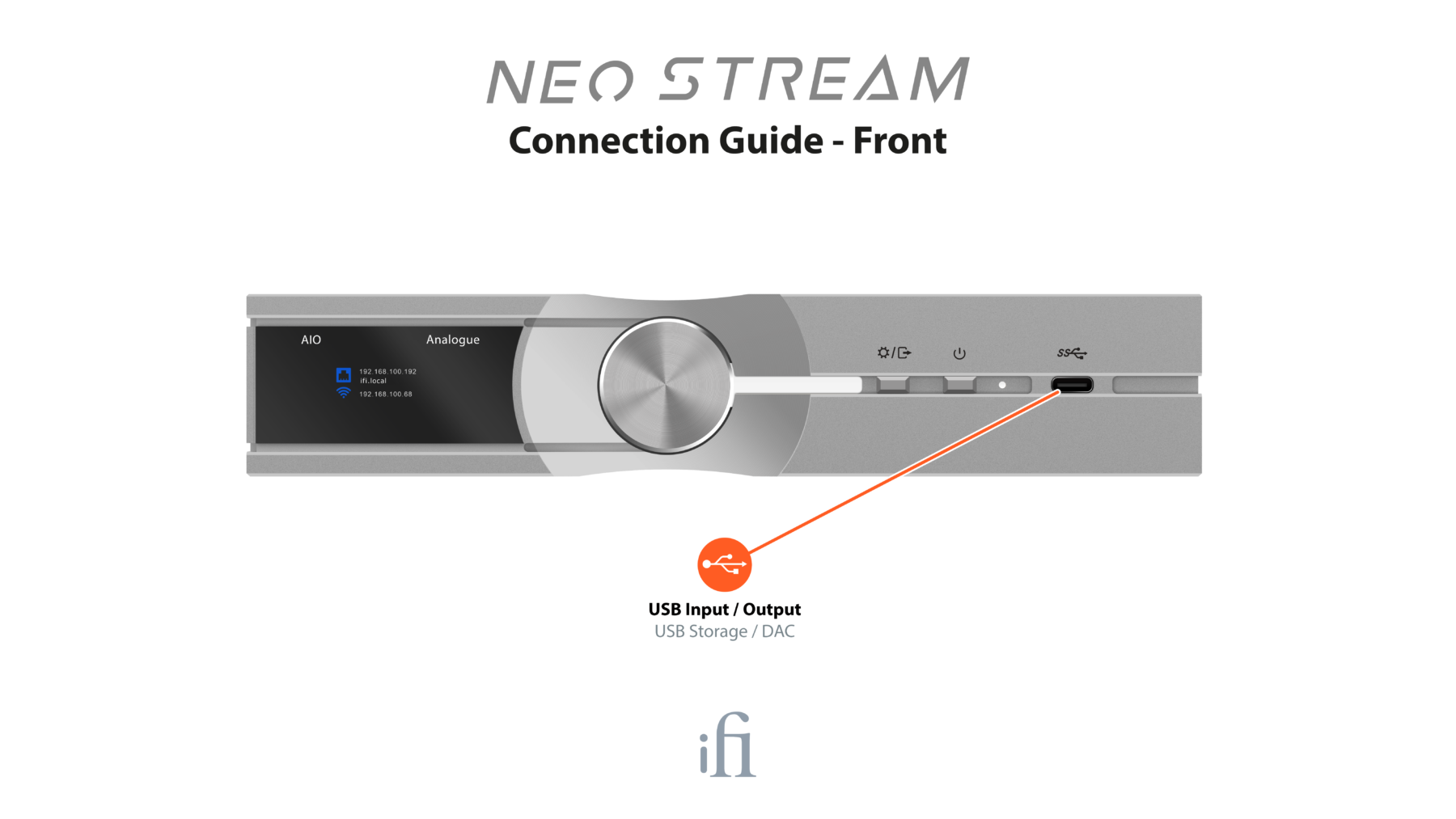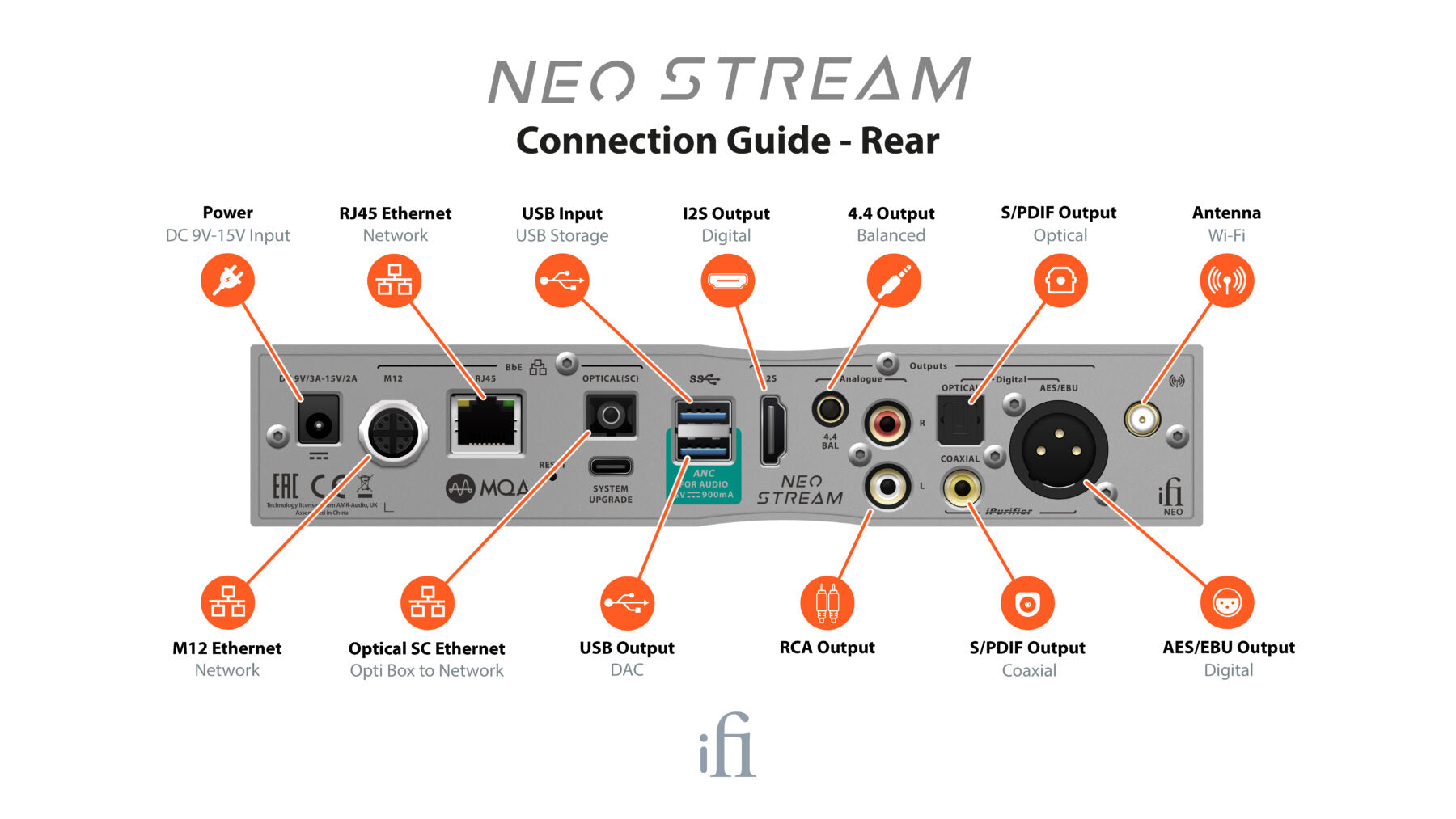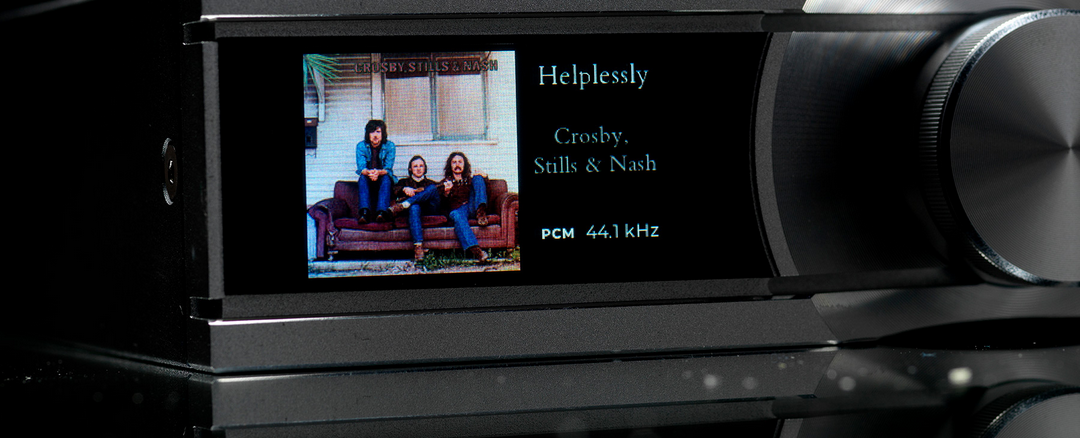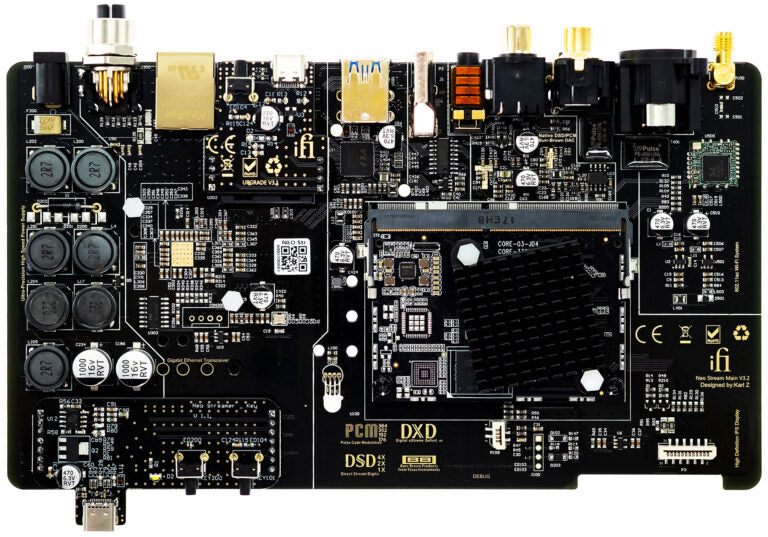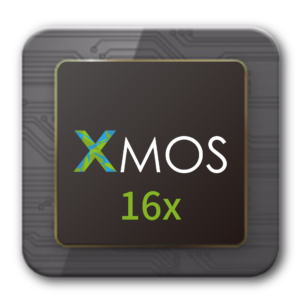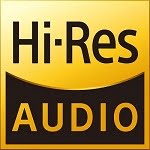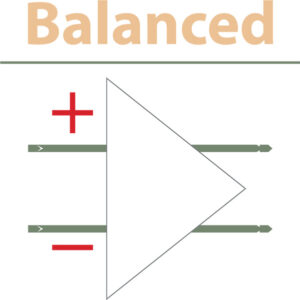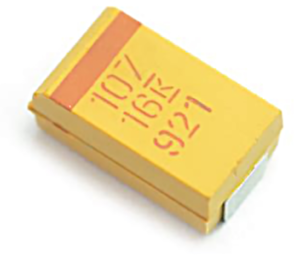Several different settings allow users to tailor the NEO Stream’s performance to suit their system and the way they like to stream.
Exclusive Modes are individual settings that optimise performance by focusing operation on one mode of use. There are specific settings for Roon, Tidal Masters, DLNA and NAA, as well as a general mode for multi-platform use.
Four user-selectable digital filters, each of which has a subtle but clearly discernible effect on sound, can be switched according to personal taste and music choice:
- Bit-Perfect
- GTO (Gibbs Transient Optimised)
- Minimum Phase
- Standard

The XMOS 16-Core chip processes the audio data received via the USB digital input.
This new low-latency XMOS microcontroller has greatly enhanced processing power. Compared to the current generation of eight-core chips, this new 16-core IC delivers double the clock speed (2000MIPS) and four times the memory (512KB), as well as the latest SuperSpeed USB standard.
iFi’s in-house digital development team has programmed the XMOS firmware to optimise sound quality and ensure a perfect partnership with the Burr-Brown chipset used in the NEO Stream.
Hi-res audio support is state-of-the-art with True Native® playback. It handles PCM data to 32-bit/768kHz, DSD up to DSD512 and single and double speed DXD.
Thanks to the Burr-Brown DAC chip’s four-channel True Native design, PCM and DSD take separate pathways – this enables DSD, as well as PCM, to remain ‘bit-perfect’ in its native form right through to analogue conversion. This is not the case with all DAC devices from other brands – even if DSD compatibility is stated, many such DACs convert DSD signals to PCM.
Roon Ready network devices have Roon’s streaming technology built in and are certified by Roon Labs to provide the highest level of quality and performance in network streaming.
Find our more about iFi and Roon here.
MQA (Master Quality Authenticated)
MQA is an award-winning British technology that delivers the sound of the original master recording. The master MQA file is fully authenticated and is small enough to stream or download. The NEO Stream adopts MQA technology to receive and decode MQA audio and provide master-level sound.
Visit mqa.co.uk for more information.
The NEO Stream’s analogue circuitry features balanced design with a symmetrical twin-channel output stage.
This topology, usually reserved for larger and more expensive amplifiers owing to its cost and complexity, reduces noise and crosstalk in the signal path by fully separating the left and right channels.
Extensive jitter-eradication technologies are applied to the digital stage, including our GMT (Global Master Timing) femto-precision clock and intelligent memory buffer. This represents a total ‘out-of-the-box’ systematic digital solution that solves jitter once and for all.
TDK C0G (Class 1 ceramic) capacitors offer high stability and low losses for resonant circuit applications.
Getting ever closer to the theoretical ideal of pure, frequency-constant capacitance, these capacitors reduce capacitor-induced distortion to vanishingly low levels.
They are pricey but are a perfect addition to our products.
Panasonic OS-CON caps totaling 5,410uF give very-low Equivalent Series Resistance (ESR), excellent noise reduction capability and frequency response characteristics. In addition, OS-CONs have a long-life span and its ESR changes little even at low temperatures since the electrolyte is solid.
They are not often found in products costing <US$1000.
Tantalum capacitors are another example of the top-notch components we prefer. These polarised electrolytic capacitors have superior frequency and stability characteristics, giving them a super high volumetric efficiency.
muRata control-type, low-ESR high-Q multi-layer capacitors. The ‘ESR control’ aspect of the Murata is something special. Their noise suppression abilities are impressive.
Texas Instruments low-noise ICs offer great unity-gain bandwidth, very low noise and distortion, high output drive capability, Common-mode and Power Supply Rejection Ratios of over 100 dB, wide maximum-output-swing bandwidths and high slew rates.
